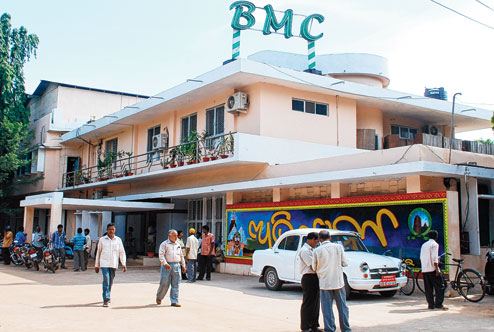Bhubaneswar: The BMC has adopted the Faecal Sludge and Septage Management (FSSM) Regulations of 2018 to end the open discharge of sewage into the city’s drainage channels.
With this, the Bhubaneswar Municipal Corporation (BMC) has also become the first Urban Local Body (ULB) in the state to adopt the resolution.
The Housing & Urban Development Department (H&UDD) had framed provisions on toilet discharge containment and waste water management in 2018.
But the BMC failed to check private vehicles which kept dumping faecal matter into the city’s drains. With the population increasing in the city, discharge of faecal matter has risen to 290 million litres of wastewater every day.
“Due to the increasing population and the absence of a sewage system a lot of untreated water is getting discharged into drains and eventually it ends up in the city’s rivers. This can lead to diseases like jaundice and gastroenteritis,” said environmentalist Pradeep Chandra Dash.
About 80 per cent of the city’s water comes from the three major rivers — Mahanadi, Daya and Kuakhai.
The city has 10 major drains flowing from west to east perpendicular to the Gangua Nallah. The storm waters from the city flow into these 10 channels. While drain No: 1 opens into the Kuakhai River, the rest (No: 2 to No: 10) open into the Gangua Nallah which carries the untreated water to Daya River.
“We have adopted the new regulations with immediate effect to check this problem,” said BMC Deputy Commissioner Srimantha Mishra.
“We have also opened a new state-of-the-art sewage treatment plant at Basuaghai that has facilities to treat 75 Kilo Litres per Day (KLD) of faecal sludge,” he added.
Meanwhile, the new FSSM regulations state that all latrines must be connected to either a scientific septic tank/pit or a sewage connection that is connected to a Sewage Treatment Plant (STP).
These tanks will be cleaned only by BMC registered vehicles and by workers wearing protective gear like jumpsuits, aprons and rubber gloves.
“The BMC will soon be holding high-level meetings with the Transport Department to ensure that all private players are registered with it. The public will be told that they should get their sewage tanks/pits cleaned by only those who are certified by the BMC,” Srimanta said.






































